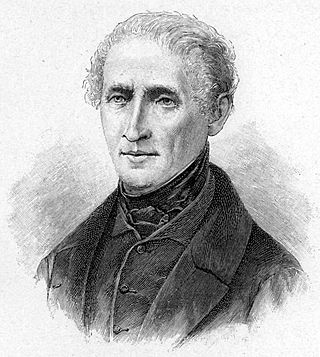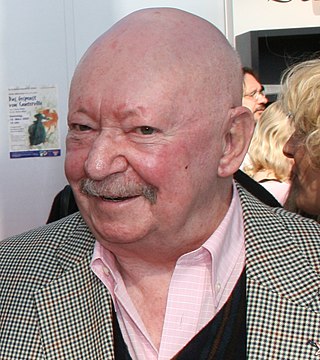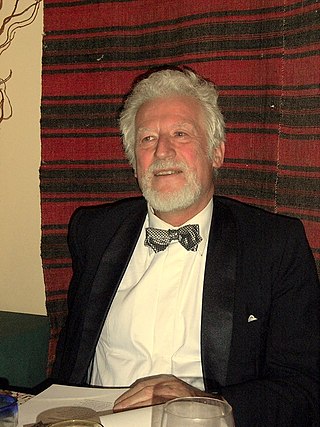
Marcel Reich-Ranicki was a Polish-born German literary critic and member of the informal literary association Gruppe 47. He was regarded as one of the most influential contemporary literary critics in the field of German literature and has often been called Literaturpapst in Germany.

Joseph Freiherr von Eichendorff was a German poet, novelist, playwright, literary critic, translator, and anthologist. Eichendorff was one of the major writers and critics of Romanticism. Ever since their publication and up to the present day, some of his works have been very popular in Germany.
Ralph Tegtmeier, also known as Frater V∴D∴ and Frater U∴D∴, is a German occultist, a longtime member of the Fraternitas Saturni, and co-founder of the Illuminates of Thanateros.

Günter Kunert was a German writer. Based in East Berlin, he published poetry from 1947, supported by Bertold Brecht. After he had signed a petition against the deprivation of the citizenship of Wolf Biermann in 1976, he lost his SED membership, and moved to the West two years later. He is regarded as a versatile German writer who wrote short stories, essays, autobiographical works, film scripts and novels. He received international honorary doctorates and awards.
High Prussian is a group of East Central German dialects in former East Prussia, in present-day Warmian-Masurian Voivodeship (Poland) and Kaliningrad Oblast (Russia). High Prussian developed in the 13th–15th centuries, brought in by German settlers mainly from Silesia and Thuringia, and was influenced by the Baltic Old Prussian language.
The Austrian State Prize for European Literature, also known in Austria as the European Literary Award, is an Austrian literary prize awarded by the Federal Chancellery for Arts, Culture, and Media to European writers. Established in 1965, the prize is endowed with a purse of 25,000 €. The prize was not awarded in 1969. It is awarded on the Salzburg Festival.

Karl-Markus Gauß is an Austrian contemporary writer, essayist and editor. He lives in Salzburg.

Peter von Matt is a Swiss philologist and author.

Ursula Krechel is a German writer.

Josef Haslinger is an Austrian writer.
The Zeitschrift für deutsches Altertum und deutsche Literatur is a quarterly peer-reviewed academic journal in the field of German studies with emphasis on the older periods. It was established in 1841 and is the oldest periodical in early Germanic studies still publishing.

Wolfgang Kauer is an Austrian author who lives in Salzburg. He writes novels, short stories, audio plays, and poems in German.
Thomas Ludwig Betzwieser is a German musicologist and opera scholar. He became a member of the Akademie der Wissenschaften und der Literatur in 2015.
Albrecht Riethmüller is a German musicologist.

Helmut Birkhan is an Austrian philologist who is Professor Emeritus of Ancient German Language and Literature and the former Managing Director of the Institute for Germanic Studies at the University of Vienna.
Klaus Böldl is a German philologist who specializes in Old Norse studies. Böldl was born in Passau and studied Nordic philology, German philology and comparative literature at the universities of Munich and Lund University. Böldl received his Ph.D. in philology at Munich in 1999, where he completed his habilitation in 2005. Since 2007, Böldl has been Professor of Scandinavian Medieval Studies at the Nordic Institute of the University of Kiel.

Wolfgang Golther was a German philologist who specialized in Germanic studies. A professor at the University of Rostock, Golther was a prominent authority on Medieval German literature and Germanic religion.

Otto Carl Alfred Moschkau (1848-1912) was a German philatelist and local historian. In 2021 he was retrospectively named as one of the fathers of philately.

Erasmus Schöfer was a German writer. He was a member of the German Communist Party and took part in resistance against the Vietnam War and rearmament, among others, and became the chronicler of resistance in Germany in his main work, a tetralogy of novels, Die Kinder des Sisyfos. It is based on recent history, from the protests of 1968 in West Germany up to the political and social developments of the 1980s until German reunification. He also wrote poetry, stories, plays and audio plays.

Murray G. Hall was a Canadian Germanist and specialist in literature.













